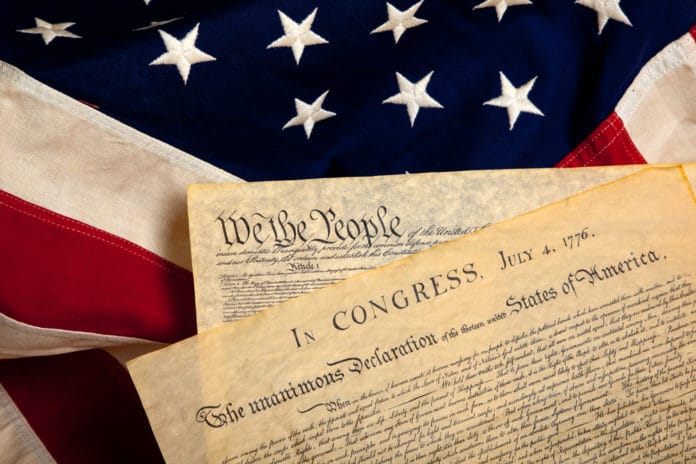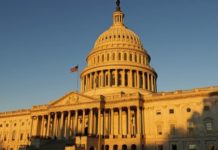
On Friday after sundown, Jews everywhere will gather in their homes to observe Passover. No doubt familiar themes will be discussed—the liberation from oppression in Egypt, the importance of memory, the duty to hand the story down from parents and grandparents to children, and—as the late Rabbi Jonathan Sacks emphasized—the art of asking questions.
This year, as I prepare for the arrival of my extended family, something new has struck me. The focus of this Jewish holiday, more than any other, is freedom. Indeed, Passover is called the “festival of freedom.” But the celebration of the holiday is called the Seder, which is Hebrew for “order.” We are required not only to do the right things but to do them in the right sequence. Our conversation always returns to what we must do and when we must do it.
This raises a classic issue—the relationship between order and freedom. Some schools of thought view them as antitheses—the more order, the less freedom, and vice versa. Libertarians want to minimize government constraints to maximize liberty. Anarchists carry this thesis to its inevitable, and self-refuting, conclusion.
In the Jewish tradition, by contrast, order makes freedom possible. In the absence of a framework—a law, a text, a tradition—we cannot act freely. Not only are we plunged into debilitating doubt, but our decisions also collide with those of others. The actions of others rarely coordinate harmoniously with our own. And when they don’t, all are prevented from acting as they choose. Without a framework of social order, every individual can seek freedom, but none can achieve it.
Judaism doesn’t embrace order that relies on force. Genuine and durable order requires a measure of unforced acceptance. The Talmud tells of a rabbi who interprets a phrase in Exodus to mean that God held Mount Sinai over the Israelites and said, “If you accept the Torah, well and good; if not, you’ll be buried under it.” As a modern scholar, Tzvi Novick observes, this is God as godfather, making Israel an offer it couldn’t refuse.
As the Talmudic story continues, another rabbi objects to this interpretation on the grounds that an agreement based on coercion can be declared invalid and that Jews can claim no special merit or insight if they accepted the Torah under duress. This objection undergirds the dominant interpretation of the Sinai episode: It was a covenantal moment in which the Israelites freely accepted the law God offered them.
This brings me, sadly, to the present. The covenant at Sinai isn’t the same as what the modern philosophical tradition calls a “social contract,” but there is a resemblance. The idea of public endorsement—the consent of the people—is common to both. The Declaration of Independence was drafted by a handful of men, but it was accepted by most of the delegates gathered in Philadelphia and was praised when it was read to George Washington’s troops a few days later. It was, as Thomas Jefferson wrote a year before he died on the 50th anniversary of the Declaration’s signing, not an original argument but an “expression of the American mind.”
The consensual basis of the Constitution is even clearer: If it had not been ratified by special constitutional assemblies in the states, it would have been a piece of parchment with no authority.
The Declaration and the Constitution have long served as the framework of order, normative and institutional, within which the drama of America’s quest for freedom was enacted. When flaws in the Constitution become impossible to ignore, Americans have appealed to the Declaration to guide the Constitution’s correction, as Abraham Lincoln and Martin Luther King Jr. did, and to public consent as the source of legitimacy for both formal constitutional amendments and for pathbreaking interpretive shifts such as Brown v. Board of Education.
Today, the erosion of this shared framework has deepened political divisions. Some “national conservatives” take the position that the Declaration of Independence set us on the path to a failed liberal individualism, while others claim that its abstract principles have nothing to do with the Constitution, which represents the continuation of the conservative British tradition. On the left, the Nation’s Elie Mystal declares that “The Constitution is kind of trash. . . . It was written by slavers and colonists, and white people who were willing to make deals with slavers and colonists.” No doubt many Americans agree with him.
As the consensual framework that gives order to American liberty frays, we become less secure in the exercise of liberty. We fear that others plot to take it away, and we squander our energy fighting one another rather than working to promote the common good.
It is not only the Jews who need an annual festival of freedom to remind them what makes liberty possible. We all do, before the withdrawal of consent from the sources of our order undermines the freedom we cherish.






